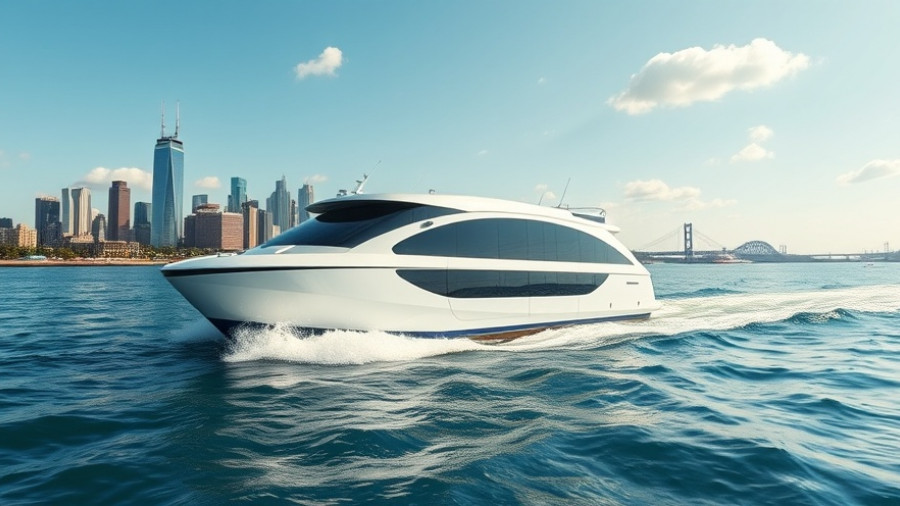
Revolutionizing Marine Travel with Electric Ferries
As concerns over climate change and sustainable transport grow, the unveiling of Glosten's new all-electric 75-passenger ferry marks a significant milestone in sustainable marine travel. Based in Seattle, Glosten is a leader in naval architecture and marine engineering, and their latest vessel promises not just to enhance green travel but also to redefine ferry design.
Innovative Design and Functionality
Featuring a lightweight carbon fiber hull, this ferry achieves remarkable energy efficiency, utilizing smaller batteries while easing the demands on shoreside charging infrastructures. The strategic positioning of battery compartments on the main deck allows operators to tailor battery types to their needs, ensuring flexibility in service and maintenance. This thoughtful design promotes access during inspections while optimizing performance, minimizing costs without compromising on sustainability.
The Importance of Sustainability in Marine Travel
With the increasing push for environmentally friendly transportation options, electric ferries like Glosten's play a crucial role in reducing emissions in marine operations. A notable reference point is the Gee's Bend ferry on the Alabama River, which successfully converted from diesel to 100% battery-electric propulsion in 2019. This project demonstrated substantial operational cost savings and reduced emissions, paving the way for similar innovations across the industry. Notably, the successful implementation of battery technology for marine transport serves as a model for future ferry designs.
Advancements in User Experience
Besides environmental concerns, the passenger experience is heavily prioritized in Glosten's design. The interior is crafted to facilitate various service needs while ensuring crew comfort and operational control. This holistic approach is essential as travel habits evolve and passengers demand more from their travel experiences.
Future Trends in Ferry Technology
Ferry operators looking to invest in sustainability will find compelling reasons to consider all-electric options in the coming years. As technology evolves, electric ferries will likely become more commonplace, reflecting shifts not only in operator expectations but also in passenger preferences. Additionally, the dual azimuthing thrusters provide intuitive controls that enhance maneuverability, promising smoother travel experiences.
Conclusion: Embracing the Electric Future
With innovations like Glosten's all-electric ferry, the future of marine travel looks increasingly electric and sustainable. As more operators and passengers demand eco-friendly travel options, the marine industry must embrace this shift towards sustainable technologies. Such advancements are not just beneficial to the environment; they are crucial for ensuring the ferry service remains relevant in a rapidly evolving transportation landscape.
 Add Row
Add Row  Add
Add 




Write A Comment